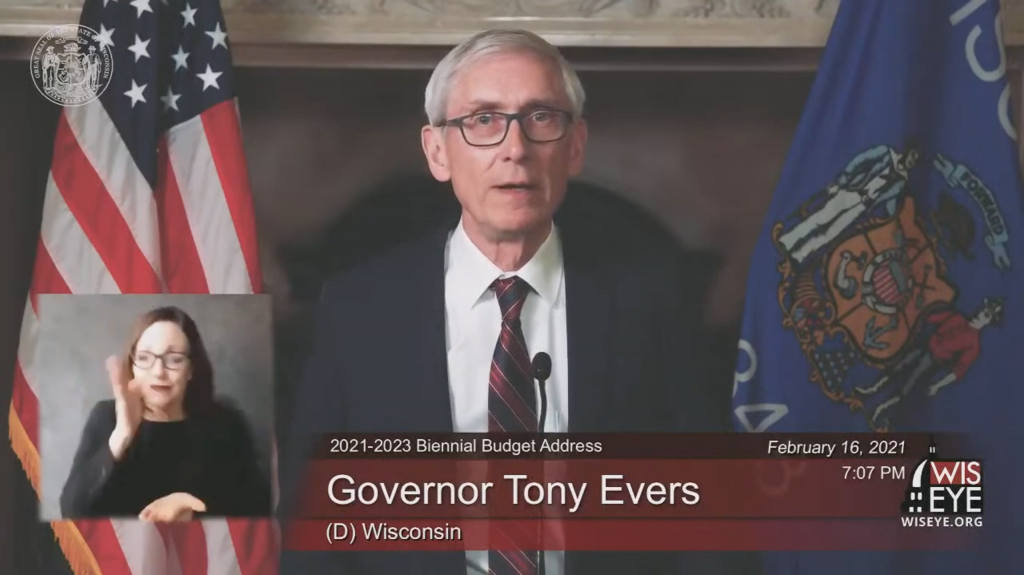Environment continues to be high priorities for governor
Gov. Tony Evers continues to make the issues of water quality and climate change key tenets of his administration. The 2021-2023 State Budget was introduced by the governor in February, and it includes significant clean water and climate change investments. With the many challenges facing Wisconsinites—including unsafe drinking water, impacts from climate change, and living through a global pandemic—the governor’s budget proposal includes important initiatives to both help Wisconsin families and sustain a strong economy.
Clean Wisconsin has been advocating for meaningful environment and equity initiatives in the state budget and is happy to see a strong proposal by Gov. Evers.
This fall, the Governor’s Task Force on Climate Change put forth a sweeping set of policy proposals aimed at cutting carbon emissions while protecting public health and boosting the economy through clean energy jobs. Some of these important initiatives are supported in Gov. Evers’ budget proposal, which include addressing critical infrastructure damage due to flooding, doubling funding for Focus on Energy, and investing in renewable energy research and increasing electric vehicle access.
- Double funding for Focus on Energy, the states energy efficiency program and prioritizing assisting low-income energy customers.
- $30 million for flooding and resiliency initiatives for communities impacted by climate change.
- $15 million funding for electric vehicle charging infrastructure.
- $4 million for a clean energy grant program
- $100 million for an innovative technology pilot program for electric utilities to develop storage and microgrids for critical infrastructure.
- Increased funding for urban forestry and tree planting in urban areas.
This budget also reflects the governor’s commitment to prioritizing clean drinking water. The governor’s proposals show he understands that eliminating drinking water pollution can save millions of dollars in health costs. Some of these important initiatives in Gov. Evers’ budget proposal include investments in lead contamination, addressing PFAS pollution, reducing rural runoff, and increasing water quality.
- $40 million for lead lateral replacement
- Over $25 million and 11 new staff positions for addressing PFAS contamination.
- Investments in addressing rural agriculture runoff with funding for country conservation staff, the well compensation grant program, a nitrogen optimization pilot program, runoff management infrastructure, and the producer-led grant program.
- $70 million for the Stewardship Program reauthorization to preserve natural communities, protect water quality and fisheries, and expand opportunities for outdoor recreation.
- Increasing annual fees for Concentrated Animal Feeding Operations (CAFOs)
- Prohibiting the sale and use of high PAH and coal tar-based pavement sealants.
The pandemic has made it clear how intrinsically linked public health is to environmental health. Across the budget, the governor includes important budget initiatives to address the social and environmental disparities in our communities, which is essential to improving public health and ensuring everyone benefits from a healthier environment.
- The creation and funding for an Office of Environmental Justice.
- $10 million to create a water utility assistance program to defray the costs of water and wastewater bills.
- $1 million and reducing restrictions for the well compensation grant program to help replace or repair contaminated private drinking water wells.
- In Focus on Energy, creating a program for low-income energy customers.
- Expanding low-cost debt financing of clean energy projects and offering inclusive on-bill financing for energy efficiency improvements.
Clean Wisconsin is eager to be a part of the budget process, working with Gov. Evers and state legislators to advocate for these important clean water and climate change proposals.

